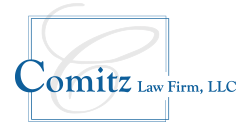 Every year, thousands of workers in Pennsylvania are injured in workplace accidents. Except for a few exceptions, virtually all employees injured while working are covered by Pennsylvania’s Workers’ Compensation Act.
Every year, thousands of workers in Pennsylvania are injured in workplace accidents. Except for a few exceptions, virtually all employees injured while working are covered by Pennsylvania’s Workers’ Compensation Act.
Workers’ compensation laws are designed to provide benefits to injured workers without them having to resort to litigation.
Workers’ compensation is based on a no-fault system. Even if your own carelessness caused your injury, you should be covered. Some scenarios would likely preclude eligibility, for instance:
- you intentionally injured yourself
- you were under the influence of drugs or alcohol
- you were injured in a fight
Workers’ compensation applies only to injuries that occurred during the “course and scope” of one’s employment. The injury need not occur on employer’s premises.
However, workers’ compensation doesn’t typically cover an employee commuting to and from work.
Third-Party Liability Claims
Under Pennsylvania’s workers’ compensation, employees typically cannot sue an employer or co-workers for negligence in causing your injury. If you were injured at work due to a person other than your employer or coworker, you may be able to file a lawsuit against the at-fault person or company. A third-party workplace injury claim is essentially a personal injury lawsuit.
Pennsylvania workers’ compensation benefits have caps and limitations. Third-party claims allow injured workers to avoid those restrictions. While workers’ compensation covers medical bills and lost wages, a successful third-party claim can include compensation for pain and suffering, emotional distress, loss of consortium, and other non-economic damages. This additional compensation can prove invaluable for workers with severe injuries or long-term disabilities that require ongoing medical care.
Workers can file both a workers compensation claim and a third party claim. Not all personal injury attorneys handle workers’ comp cases. Attorney Jonathan Comitz and his team are highly experienced in both of these areas of law.
Examples of third-party claims
Car accidents are the most common form of work-related injury that lead to third party
lawsuits. Third-party claims are also common in construction accidents, given the numerous parties typically involved on a construction site.
Other examples of third-party negligence claims related to workplace injuries include:
- defective products
- property owner negligence
- exposure to toxic substances
- dangerous equipment
- slip-and-fall accidents
Proving third-party liability
With third-party liability claims, it is necessary to prove the third party’s negligence and fault, or other wrongful acts or omissions.
The plaintiff will need to establish that the third-party:
- owed them a duty of care
- breached the duty of care
- was the proximate cause of the injury
- caused an actual loss or injury
Compensatory damages
Damages awarded in a third-party case can include:
- pain and suffering
- emotional distress
- past medical expenses
- future medical expenses
- lost wages
- lost future earning capacity
- property damage
If you have been injured in a workplace accident and have questions about workers’ comp or third-party claims, call Comitz Law at 570-829-1111 or email info@comitzlaw.com.


